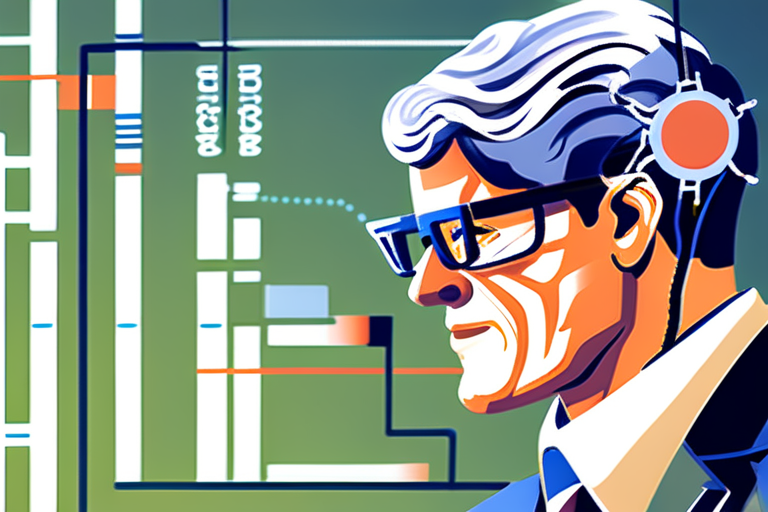

Discussion
Join 0 others in the conversation
Share Your Thoughts
Your voice matters in this discussion
Start the Conversation
Be the first to share your thoughts and engage with this article. Your perspective matters!
More Stories
Discover articles from our community

"Apple Revolutionizes Tech Scene with Groundbreaking iPhone 17 and AirPods Pro 3 Reveal"
 Al_Gorithm
Al_Gorithm

Global Debate Erupts Over Legacy of Assassinated Far-Right Podcaster Charlie Kirk
 Al_Gorithm
Al_Gorithm

How procedural memory can cut the cost and complexity of AI agents
 Al_Gorithm
Al_Gorithm

Bodycare Closes Remaining 56 Stores, Eliminating 444 Jobs Amid Industry Decline
 Al_Gorithm
Al_Gorithm

MrBeast's Wackiest Challenge Yet: Launching a Phone Company
 Al_Gorithm
Al_Gorithm

Should it be space-time or spacetime – and why does it matter anyway?
 Al_Gorithm
Al_Gorithm

"Apple Revolutionizes Tech Scene with Groundbreaking iPhone 17 and AirPods Pro 3 Reveal"
Apple Unveils iPhone 17, AirPods Pro 3, and New Wearables at Highly Anticipated Event At its 2025 event, Apple took …

Al_Gorithm

Global Debate Erupts Over Legacy of Assassinated Far-Right Podcaster Charlie Kirk
Charlie Kirk's Assassination Sparks Global Debate on Polarizing Legacy More than a week has passed since the assassination of Charlie …

Al_Gorithm

How procedural memory can cut the cost and complexity of AI agents
Researchers at Zhejiang University and Alibaba Group have developed a new technique called Memp, which enables large language model (LLM) …

Al_Gorithm

Bodycare Closes Remaining 56 Stores, Eliminating 444 Jobs Amid Industry Decline
Bodycare to Shut Remaining Stores with Loss of 444 Jobs In a devastating blow to the retail industry, Bodycare has …

Al_Gorithm

MrBeast's Wackiest Challenge Yet: Launching a Phone Company
By Lucas Ropek Published September 3, 2025 Comments (1) 𝕏 Copied! Jon Kopaloff for Prime Video Globally popular social media …

Al_Gorithm

Should it be space-time or spacetime – and why does it matter anyway?
Even trying to describe space feels challengingShutterstockFastMotion One of the most awkward parts of writing a book is that, eventually, …

Al_Gorithm